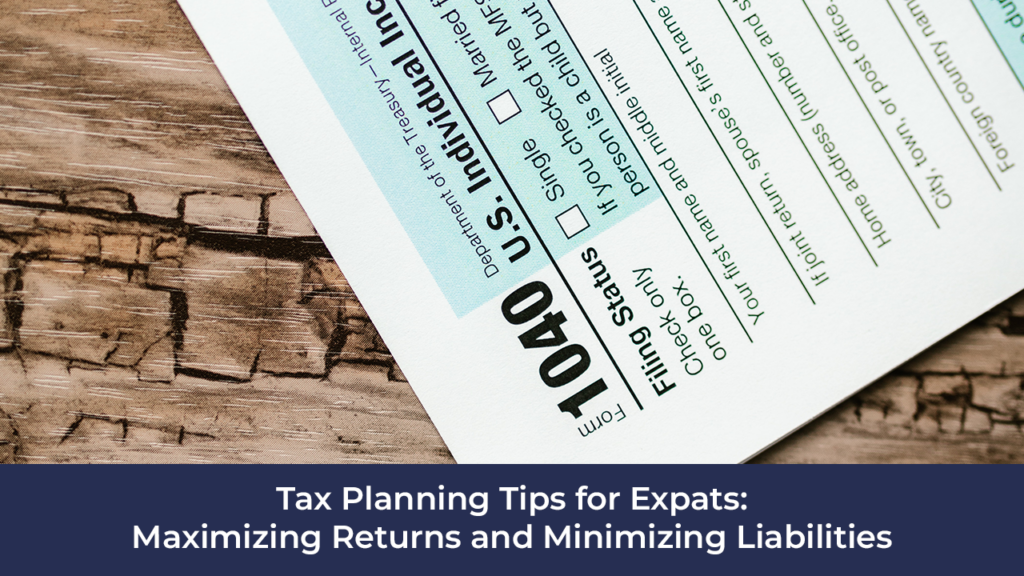Germany, with its strong economy, stable political environment, and world-renowned efficiency, has long been an attractive destination for expatriates seeking to invest in real estate. Whether you’re planning to move to Germany or are simply looking to diversify your investment portfolio, the German real estate market offers a range of opportunities. However, like any investment endeavor, it comes with its own set of challenges and considerations. In this comprehensive guide, we’ll explore the ins and outs of investing in German real estate as an expat, covering the market overview, its attractiveness, legal and tax considerations, and potential pitfalls to be aware of.
The German Real Estate Market: An Overview
Stability and Economic Strength
Germany is often seen as the economic powerhouse of Europe. Its robust economy, low unemployment rates, and political stability make it an attractive destination for expat investors. The country’s real estate market, in particular, has garnered attention due to its steady growth and strong fundamentals.
Diversity of Real Estate Options
Germany offers a wide range of real estate investment options, from residential properties to commercial spaces, industrial facilities, and even agricultural land. This diversity allows investors to choose properties that align with their investment goals and risk tolerance.
Rental Income Potential
One of the key attractions for expat investors is the stable rental market in Germany. The country’s strong tenant protection laws and a culture that values long-term renting mean that landlords can enjoy reliable rental income. This is particularly appealing for those seeking a consistent cash flow from their real estate investments.
The Big Cities vs. Smaller Towns
Germany’s real estate market isn’t a one-size-fits-all proposition. While major cities like Berlin, Munich, and Hamburg offer higher property prices, they also present excellent rental income potential. On the other hand, smaller towns and rural areas may offer lower property costs but might not provide the same rental returns. Investors should carefully consider their location preferences when diving into the German real estate market.
The Attractiveness of German Real Estate to Expat Investors
Strong Legal Protection
One of the most appealing aspects of investing in German real estate is the country’s robust legal framework. Germany has well-defined property rights, stringent tenant protection laws, and a transparent legal system that ensures a fair and secure environment for investors.
Currency Diversification
For expatriates looking to diversify their investment portfolio and reduce exposure to their home currency, investing in German real estate can be a smart move. The Euro, which is the currency used in Germany, offers a hedge against fluctuations in other global currencies.
Potential for Capital Appreciation
While Germany is known for its stability rather than meteoric property price increases, certain areas have seen impressive capital appreciation over the years. In major cities and regions with strong economic growth, property values have steadily increased, providing opportunities for capital gains.
Favorable Mortgage Rates
Germany boasts competitive mortgage rates, even for non-resident investors. This means that expats can finance their real estate purchases with relatively low-interest rates, enhancing the attractiveness of investment opportunities.
Legal and Tax Considerations
Property Ownership
Expats are legally allowed to buy property in Germany, and the process is relatively straightforward. However, it’s essential to understand the legal requirements and restrictions associated with property ownership. Engaging a local attorney who specializes in real estate transactions is highly recommended to navigate the legal intricacies.
Financing Options
Expats can obtain mortgages from German banks to finance their property purchases. While the process is feasible, it’s important to note that lending criteria may differ for non-resident borrowers. Typically, banks will require a significant down payment, often around 30% of the property’s value.
Taxes
Understanding the tax implications of your real estate investment is crucial. Germany has a complex tax system, and property taxes, in particular, can be a significant consideration. Some key tax points to consider include:
Property Transfer Tax (Grunderwerbsteuer)
When purchasing property in Germany, buyers are required to pay a property transfer tax, which can range from 3.5% to 6.5% of the property’s purchase price. This tax is typically split equally between the buyer and the seller, although the exact division can be negotiated.
Income Tax on Rental Income
Expats who earn rental income from their German properties are subject to income tax. The tax rate can vary depending on your personal income and other factors. It’s advisable to consult with a tax professional to ensure compliance with German tax laws.
Wealth Tax (Solidarity Surcharge)
Germany imposes a wealth tax known as the Solidarity Surcharge (Solidaritätszuschlag), which is a percentage of your income tax. This tax is primarily aimed at funding infrastructure projects in the former East Germany. Expats should be aware of this additional financial obligation when investing in German real estate.
Residency and Double Taxation
Expats may also need to consider the implications of residency and double taxation treaties between Germany and their home countries. These treaties can affect the taxation of rental income and capital gains. Seeking advice from a tax expert well-versed in international tax law is highly recommended to optimize your tax position.
Potential Pitfalls to Be Aware Of
High Entry Costs
The upfront costs associated with buying real estate in Germany can be substantial. Property transfer taxes, notary fees, and legal fees can significantly increase the initial investment. Investors must budget for these expenses to avoid unexpected financial strains.
Competitive Market
In popular cities like Berlin and Munich, the real estate market can be highly competitive. It’s not uncommon for properties to receive multiple offers, which can drive up prices. Patience and diligence are essential when searching for the right investment opportunity.
Language Barrier
Navigating the German real estate market may be challenging for expats who do not speak German fluently. Many documents and contracts are in German, so having a trusted translator or working with a bilingual real estate agent can be invaluable.
Maintenance Costs
Owning property comes with ongoing maintenance costs, and these can vary depending on the age and condition of the building. Expats should budget for maintenance expenses to ensure their investment remains profitable.
Cultural Differences
Understanding the cultural norms and expectations in the German real estate market is crucial. For example, long-term rental agreements and strict tenant protection laws are deeply ingrained in German culture. Investors should be prepared to adapt to these practices.
Conclusion
Investing in German real estate as an expat offers numerous opportunities for stable income and potential capital appreciation. The country’s strong economy, legal protections, and transparent legal system make it an attractive destination for real estate investors. However, it’s essential to approach this market with a clear understanding of the legal and tax considerations, potential pitfalls, and the unique characteristics of the German real estate landscape.
Before embarking on your investment journey, take the time to research and seek professional advice. Engaging with local experts, such as real estate agents, attorneys, and tax professionals, can help you navigate the complexities of the German real estate market and make informed decisions that align with your financial goals. With careful planning and due diligence, investing in German real estate can be a rewarding and profitable venture for expats.




